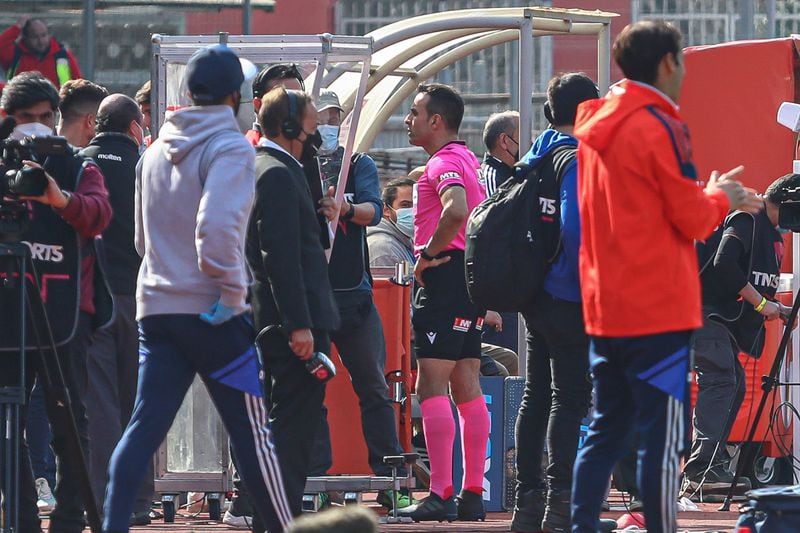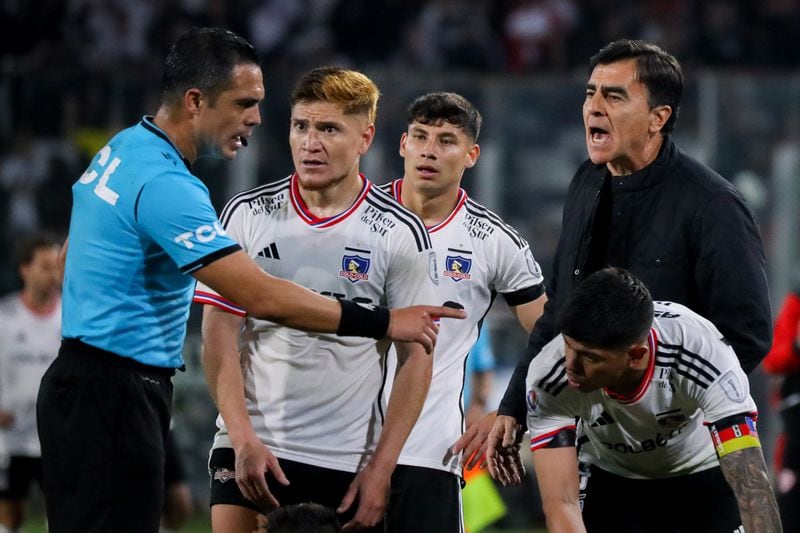At a meeting held in London, the International Football Association Board announced that it would seek to implement a series of rules to give greater continuity to matches. Greater VAR involvement and tougher sanctions against complaints are just a few.
The International Football Association Board (IFAB), the body that dictates the rules of football, held another meeting this week in London, England. The body is made up of FIFA and the UK’s four national associations, and they meet regularly to discuss changes to the game.
In the last hours they published a report that attracted the attention of the world, which indicates that they are studying the implementation of measures that could modify the activity on the ground, such as the establishment of temporary expulsions to promote respect for referees and give more space to VAR. powers.
VAR for yellows and corners
Currently, the operation of VAR is limited only to expulsions and infractions that could potentially result in a penalty. The IFAB has now announced plans to give it more powers, such as involvement in yellow cards, corners and common fouls.

This can undoubtedly undermine the goal of reducing wasted time. in matches, something that since the 2022 World Cup in Qatar they have been trying to combat by increasing the number of minutes added in each half. However, the organization is aware of this problem and does not rule out regulation. In the future, changes could be made to “the six-second restriction for goalkeepers, delaying restarts and managing injuries,” the report said.
Stop complaints and even body cameras
Another of the salient points of the writing concerns “the strictest application of the Laws of the Game against players and coaches who demonstrate disrespectful behavior and the best management of mass confrontations”. Thus, they propose to establish temporary expulsions for footballers and people who protest to the judge.
This last point is of great importance in countries like Chile, where players and coaching staff constantly angrily question referees’ decisions.

Additionally, this point establishes that in certain situations only the team captain can speak with the judge, thus acting as spokesperson for the rest of his teammates on the field. a situation that currently exists in sports like rugby.
Additionally, to combat conflicts during the game, It has been proposed that referees wear body cameras, which will serve as evidence know exactly the severity of the events that are occurring.
We must vote for them
However, all of these measures described above are not yet a reality. In fact, they are due to be voted on by the IFAB in March next year. In the proceeding, it should be noted that FIFA has four votes and that the four associations of the countries of the United Kingdom (made up of England, Scotland, Wales and Ireland) have with one voice each. For these changes to be approved, they need six votes out of eight, or 75% of the total.
If these regulatory changes are finalized, they could only come into force at the start of the next European season. That is to say from July 1 of next year.
Follow at El Deportivo
Source: Latercera
I’m Scott Moore, a professional writer and journalist based in the US. I’ve been writing for various publications for over 8 years now, and have been working as an author at athletistic for the past five years. My work has been featured by some of the leading sports websites and magazines across Europe.


